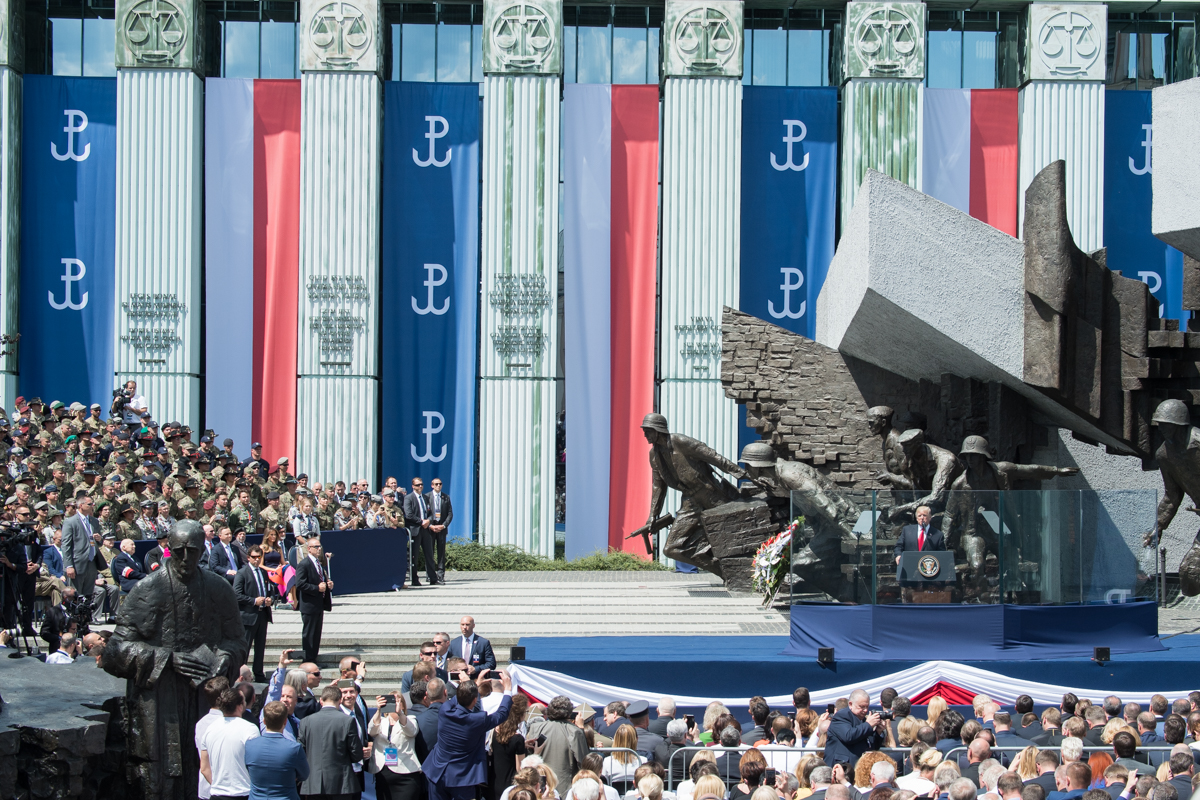Photo credit: Trump White House Archived
Context:
Poland has been pushing to host a permanent U.S. military base for years- proposing it be named “Fort Trump” may have sealed the deal. Poland is looking to shore up relations with the U.S. and defend against an increasingly aggressive Russia, but increased defense spending and the presence of foreign troops has a measured effect on human rights practices and the economy.
In the News:
“Polish President Andrzej Duda, who wants the base both to shore up ties to the US and defend against an increasingly aggressive Russia, sweetened the deal during a press conference alongside Trump hours later, saying he recommends the base be named after the American commander in chief. While it’s a nakedly obvious ploy by Duda, it’s also a smart move. He surely noticed — as leaders in Saudi Arabia and China have — that flattering Trump is almost a surefire way to make him a close friend. Saying that Poland would pay $2 billion for the installation — and naming it after Trump — was likely a move to make Trump more amenable to the base idea.”
“It’s safe to say that Russia won’t be happy with the Trump-Duda press conference. Poland, which borders a Russian enclave known as Kaliningrad, was once a satellite state of the Soviet Union. The country was bound to Moscow by something called the Warsaw Pact. But Poland has slowly westernized and moved out of Moscow’s orbit. The country is now a member of the European Union and NATO, and continually works to strengthen its relationship with Washington. Russia doesn’t like the fact that Poland regularly hosts thousands of US and NATO troops, since this puts them extremely close to Russian territory and parts of Europe the Soviet Union once controlled. A permanent US military base there would only make Russia angrier, some experts say. That means there would be a chance — not a big one, but a chance — of a fight breaking out near or in Poland over the base decision. Trump, however, doesn’t see it that way. Russians “respect force, as anyone does,” the president said at Tuesday’s press conference. Putting a base there, he seemed to suggest, would deter Russia from its confrontational stance.”
Insight from Peace Science:
Vol. 2, Issue 6: The Effects of Military Spending on Economic Growth
- When host countries are less relevant to U.S. security interests, the presence of U.S. troops can lead to positive human rights practices.
- When host countries are more central to U.S. security interests, respect for human rights stay the same, or even decrease.
- Since the end of the Cold War, human rights education in the U.S. military has increased. However, continued expansion of this training is necessary to inform soldiers of the many ways they can influence human rights.
Vol. 3, Issue 1: Human Rights Implications of Foreign U.S. Military Bases
- Increased military spending leads to slower economic growth.
- Military spending tends to have a negative impact on economic growth.
- Over a 20-year period, a 1% increase in military spending will decrease a country’s economic growth by 9%.
- Increased military spending is especially detrimental to the economic growth of wealthier countries.
References:
- “Poland’s president wants Trump to open a US base in his country — and name it ‘Fort Trump'” By Alex Ward for Vox. Sept. 18, 2018
- Peace Science Digest Vol. 2, Issue 6. “The Effects of Military Spending on Economic Growth”; Vol. 3, Issue 1: “Human Rights Implications of Foreign U.S. Military Bases”

